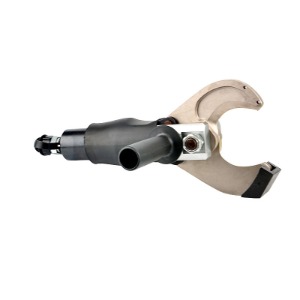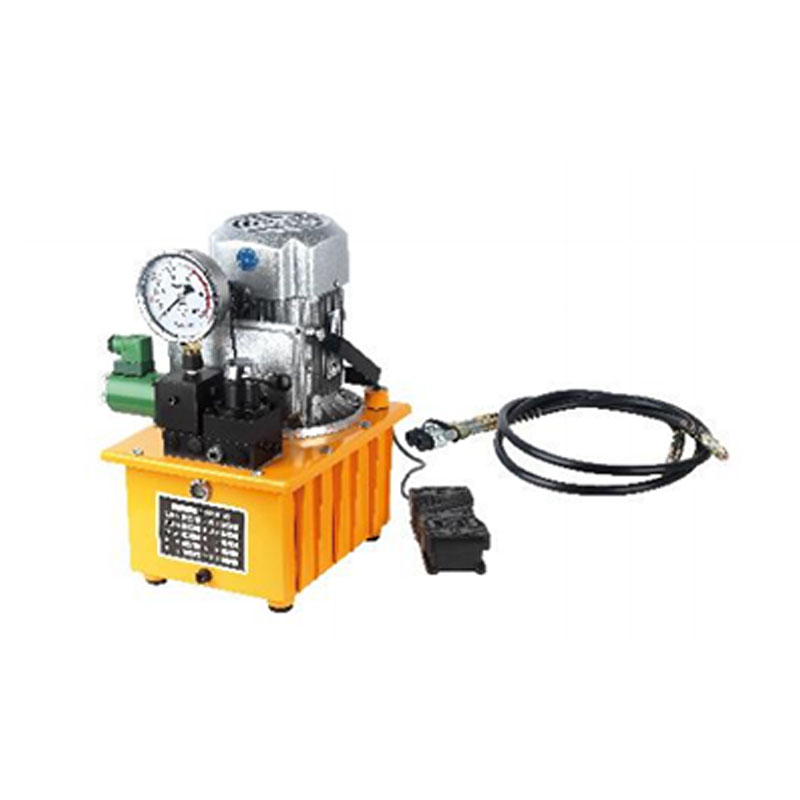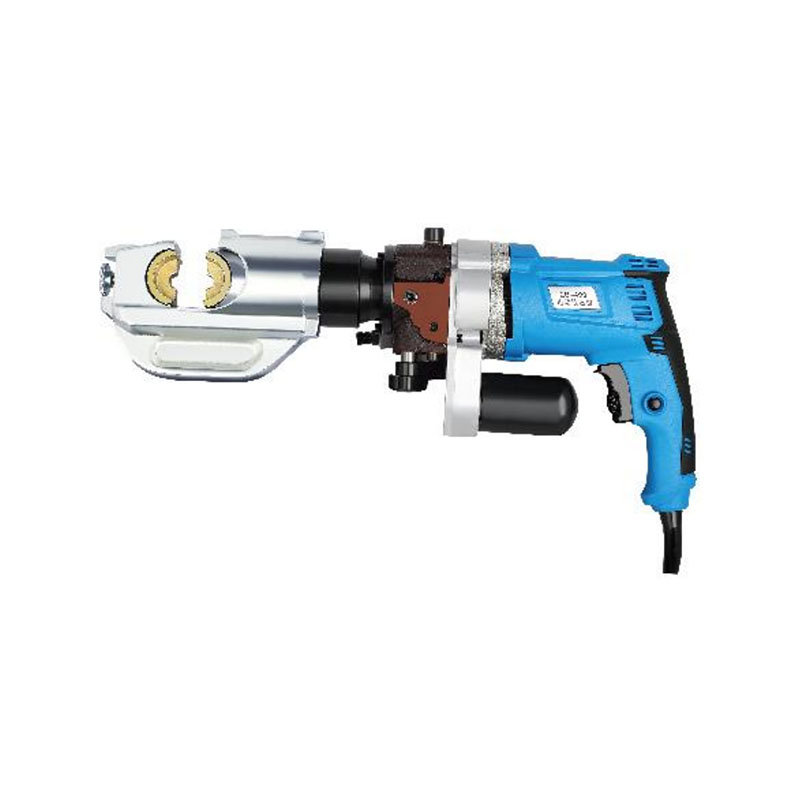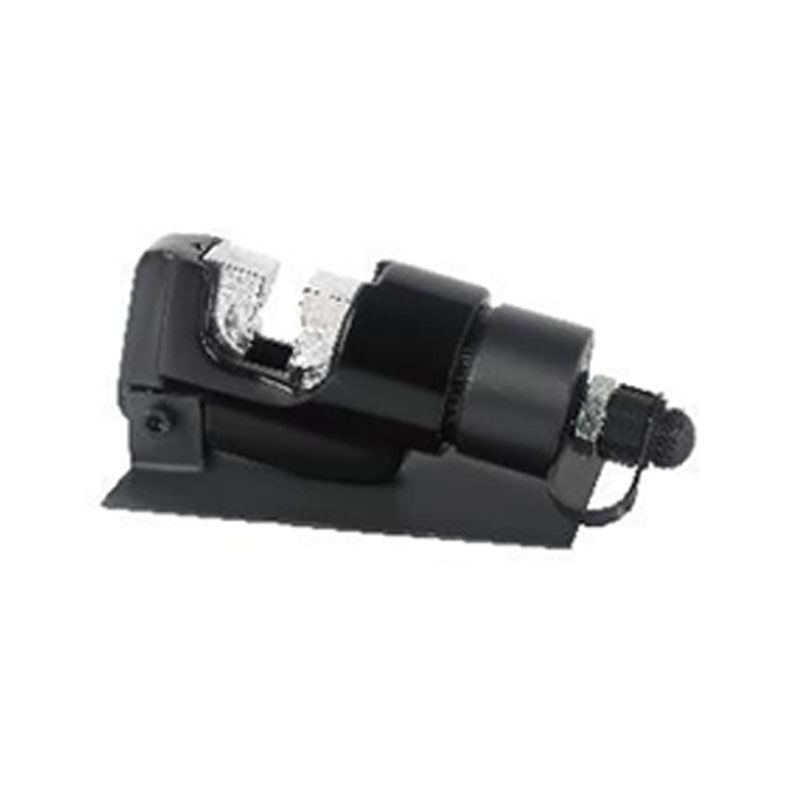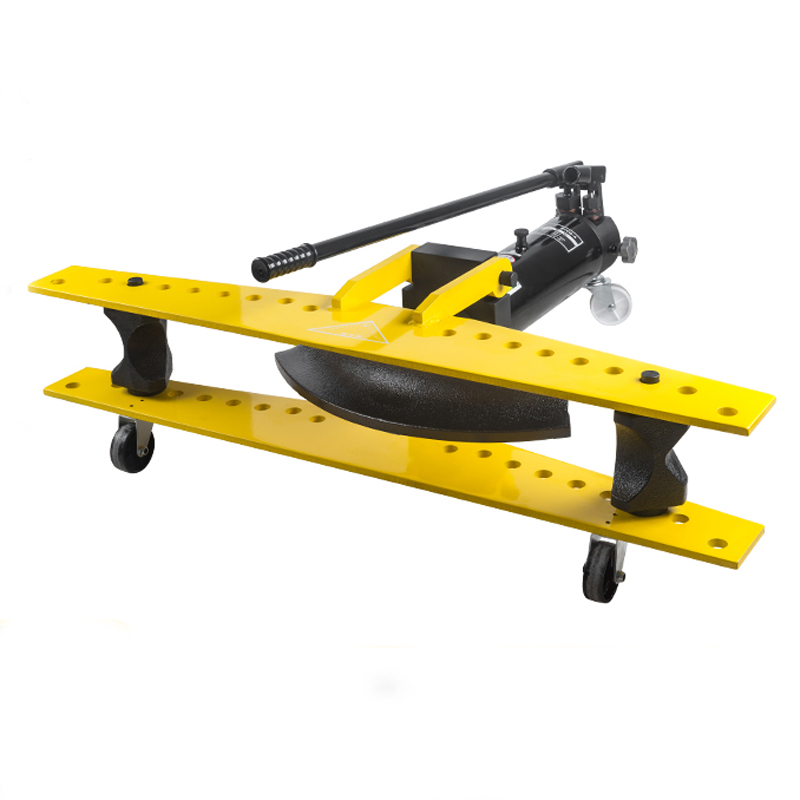CPC-65C split hydraulic cable cutter for copper and aluminum cables
 2025.01.24
2025.01.24
 Industry News
Industry News
When working on construction or electrical projects, having the right tools is essential for efficiency, safety, and achieving high-quality results. Two commonly used tools in these industries are the Hydraulic Cable Cutter and the Rebar Cutter. Although they both serve cutting purposes, they are designed for very different applications. In this article, we'll compare the Hydraulic Cable Cutter and the Rebar Cutter to help you determine which tool is the fit for your specific project.
1. Understanding the Hydraulic Cable Cutter
A Hydraulic Cable Cutter is primarily designed for cutting through thick cables and wires. It uses hydraulic pressure to generate the force needed to cut through materials like copper, aluminum, or steel cables. This tool is ideal for electrical work, telecommunications, and construction projects that involve handling electrical cables.
CPC Series Open Type Split Hydraulic Cable Cutter For Cutting Copper Aluminum Armored Cables
The Hydraulic Cable Cutter excels in cutting thick wires with ease, providing a clean cut without damaging the internal structure of the cables. This makes it the go-to tool for professionals working with high-voltage cables, where precision and safety are critical.
2. What is a Rebar Cutter?
On the other hand, a Rebar Cutter is designed specifically to cut through rebar (reinforcing bars) used in concrete construction. Rebar is typically made of steel and is essential in reinforcing concrete structures such as foundations, columns, and beams. The Rebar Cutter is built to handle the toughness of steel rebar and can quickly cut through it without excessive force.
Rebar Cutters are ideal for construction workers who need to cut rebar to specific lengths for concrete projects. These tools are often used on job sites where speed, precision, and power are essential to maintaining the flow of the project.
3. Key Differences Between Hydraulic Cable Cutter and Rebar Cutter
The Hydraulic Cable Cutter and Rebar Cutter differ in terms of their design and cutting capabilities. While both tools are designed to cut metal, the Hydraulic Cable Cutter is optimized for cutting through softer materials like copper or aluminum, while the Rebar Cutter is specifically designed for tougher, thicker steel rebar.
The Hydraulic Cable Cutter tends to be more compact and is easier to maneuver in tight spaces where electrical cables are present. In contrast, a Rebar Cutter is generally more powerful and bulky, designed to handle the heavy-duty demands of a construction site where large quantities of rebar are being processed.
4. Which Tool Should You Choose for Your Project?
When choosing between a Hydraulic Cable Cutter and a Rebar Cutter, consider the material you need to cut and the scope of your project. If you are working with electrical cables or wires, a Hydraulic Cable Cutter will be your choice. Its efficiency in cutting through cables without damaging them makes it an essential tool for electricians and construction workers involved in wiring.
On the other hand, if your project involves cutting steel rebar for concrete reinforcement, a Rebar Cutter is the tool you'll need. Its heavy-duty build allows it to handle tough materials that a Hydraulic Cable Cutter might not be able to cut effectively.
5. Efficiency and Speed: How Each Tool Performs
In terms of efficiency, both tools excel in their respective areas. The Hydraulic Cable Cutter allows for a clean and efficient cut with minimal effort, making it a time-saver for electrical contractors. The hydraulic mechanism provides a quick, powerful cut without the need for excessive manual labor.
Similarly, the Rebar Cutter is designed to cut through rebar quickly and precisely, helping construction crews maintain a steady workflow. Its high-power cutting mechanism reduces the time needed to cut each piece of rebar, enabling faster project completion.
6. Safety Considerations
Both the Hydraulic Cable Cutter and Rebar Cutter are designed with safety in mind, but they should always be used properly to avoid injury. The Hydraulic Cable Cutter typically has safety features like anti-slip handles and pressure relief valves to ensure a secure grip and prevent accidents while cutting.
A Rebar Cutter, being a more powerful tool, often comes with additional safety features such as reinforced guards and safety locks. Workers should always wear appropriate protective gear, including gloves and safety goggles, when using these tools to prevent accidents and injuries.
The Hydraulic Cable Cutter and Rebar Cutter are both essential tools, each designed for specific applications. When working with cables and wires, the Hydraulic Cable Cutter is your go-to choice for precision and ease. However, if you are working on a construction site and need to cut steel rebar, the Rebar Cutter will be the effective tool for the job.
By understanding the differences and knowing which tool suits your project, you can ensure that your work is completed efficiently and safely, saving time and effort in the long run. Whether you need to cut cables or rebar, selecting the right tool is key to achieving the results on your job site.



 Español
Español русский
русский
